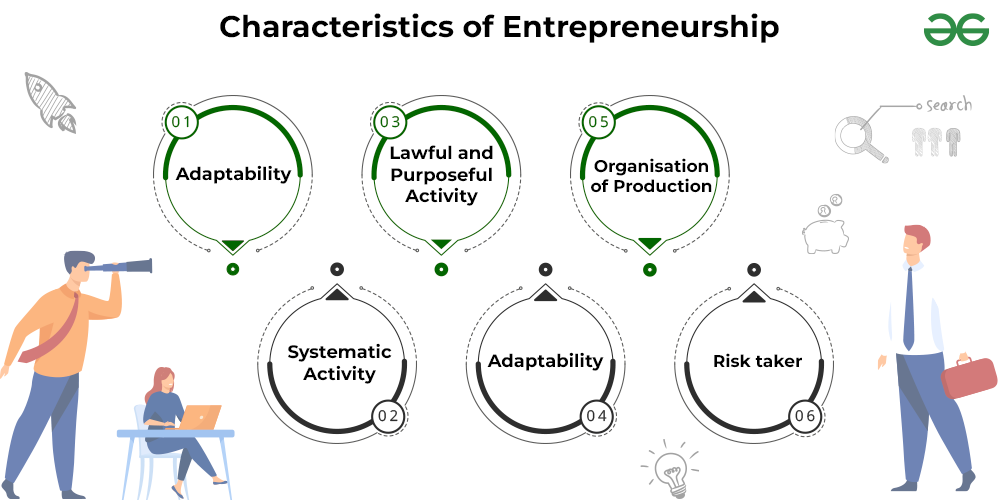Research funding impact is a critical element that shapes the landscape of innovation and economic growth in the United States. As reported, federal funding for biomedical research and technology has substantial ripple effects, translating into $2.56 in economic activity for every dollar invested. Universities like Harvard are at the forefront, acting as incubators for the startup ecosystem, especially through their robust entrepreneurial programs at Harvard Business School. However, recent funding cuts threaten these networks of support, jeopardizing the livelihoods of budding entrepreneurs while stifling advancements that contribute to U.S. economic growth. As venture capital relies on a thriving research environment, these disruptions could reshape the future of scientific discovery and, ultimately, the market for new technologies.
The effect of funding on research and innovation is profound, especially in terms of fostering entrepreneurship and economic progress. Without adequate financial support for scientific inquiries, the pipeline for launching successful startups will face significant obstacles. Academic institutions play a pivotal role in connecting research endeavors to commercial opportunities, often leading to advancements in various sectors, including healthcare and technology. When funding is restricted, the dynamic between research initiatives and entrepreneurial growth becomes increasingly fragile, affecting not just academic institutions but the economic stability of the nation. Recognizing this interplay is essential for ensuring that innovation continues to thrive in a competitive landscape.
The Impact of Research Funding on U.S. Economic Growth
Research funding plays a pivotal role in fostering innovation and economic development in the United States. When financial support for scientific research is robust, it leads to a proliferation of new ideas and technologies that can stimulate job creation and drive economic growth. Federal investments in research and development can yield substantial returns, with studies indicating that for every dollar spent on biomedical research, there is a significant return in economic activity. For instance, the recent findings from United for Medical Research highlight a staggering $2.56 return for every dollar invested in 2024, emphasizing how vital research funding is for the overall health of the U.S. economy.
However, cuts to research funding can have detrimental effects, as evidenced by the recent freeze of over $9 billion in grants to Harvard University. Economists predict that even a partial funding cut could result in a 3.8% contraction of the economy, drawing parallels to the economic downturn during the Great Recession. This decline not only threatens immediate financial stability but also undermines long-term innovation and entrepreneurial opportunities that are cultivated within research institutions.
The Role of Research Universities in the Startup Ecosystem
Research universities, such as Harvard, serve as crucial incubators within the startup ecosystem. By bridging the gap between academic research and entrepreneurship, these institutions enable faculty and students to transform innovative ideas into viable business ventures. The collaboration of facilities like the Wyss Institute and the Broad Institute creates a fertile ground for startups, particularly in fields like computer science and biomedicine. This environment encourages the transfer of knowledge and technology from the laboratory to the marketplace, significantly contributing to the startup landscape.
Moreover, the rich entrepreneurship curriculum at institutions like Harvard Business School equips students with the necessary skills to launch their ventures successfully. With a strong emphasis on practical applications of knowledge, students engage in numerous startup projects, fostering a culture of entrepreneurship. This systemic support not only cultivates aspiring entrepreneurs but also consistently feeds the startup pipeline, reinforcing the importance of research universities in generating new business opportunities.
Venture Capital and Its Link to Research Funding
Venture capital is an essential component of the startup ecosystem, particularly for new companies emerging from research institutions. Investment from venture capital firms helps to bridge the gap between innovative research and commercial viability. When research funding is stable, it creates a vibrant ecosystem that attracts venture capital, as investors are more willing to fund companies that are backed by sound scientific research and a promising market.
The interplay between research funding and venture capital is crucial. A steady stream of federal research funding can enhance the prospects of startup companies, making them more appealing to investors. Conversely, any disruptions in the research funding landscape can result in uncertainty, potentially deterring venture capital investment. As such, the joint health of research funding and venture capital is vital for sustaining innovation and economic growth.
The Future of Entrepreneurship Amid Funding Cuts
The recent freezes in research funding pose significant risks to the future of entrepreneurship in the U.S. with potential hiring freezes and project cancellations prevailing in research facilities. The consequences of these funding cuts will take time to materialize, as the entrepreneurial pipeline is lengthy. Startups that are being conceived today are drawing upon research and insights that have been cultivated over the past several years, which means that the immediate effects may not be visible until later stages of development.
As a result of reduced funding, the likelihood of fewer promising startups emerging from research institutions increases, risking a slowdown in innovation. The long-term implications could reshape the entrepreneurial landscape, limiting opportunities for nascent companies that would drive future economic growth. To mitigate these challenges, it is crucial for stakeholders to advocate for stable research funding to sustain the health of the startup ecosystem.
How Startups Translate Research into Market Solutions
Startups play a vital role in translating the findings of academic research into practical market solutions. By harnessing the innovative ideas developed in university labs, these new businesses create products and services that address real-world challenges. Startups in sectors such as health technology, clean energy, and artificial intelligence often emerge from the scientific advancements achieved through dedicated research funding and collaborative efforts within universities.
Moreover, the commercialization of research not only benefits the respective fields but also stimulates broader economic growth. As startups scale, they generate employment opportunities and attract additional investment, creating a positive feedback loop that strengthens the entire economy. Thus, the synergy between research funding and startup formation is essential for driving forward-thinking solutions that propel economic advancement.
The Entrepreneurial Mindset Fostered by Research Institutions
The entrepreneurial mindset cultivated within research institutions is a key factor in driving innovation and economic growth. Programs designed to support entrepreneurship—such as accelerator programs, mentorship opportunities, and technology transfer offices—encourage researchers and students to think beyond traditional academic boundaries. At institutions like Harvard, students and faculty members are motivated to pursue entrepreneurial ventures that align with their research interests, facilitated by access to resources and networking opportunities.
Additionally, this mindset not only encompasses optimism and creativity but also resilience in the face of challenges. The university environment fosters a culture where taking risks is encouraged and failure is viewed as a learning opportunity. This shift in perspective helps to motivate the next generation of entrepreneurs who are willing to tackle complex problems through innovative solutions.
Navigating the Intersection of Academia and Industry
The intersection of academia and industry is a dynamic space where research institutions meet the demands of the marketplace. This collaboration is essential for advancing technology and developing products that improve quality of life. When researchers work closely with industry leaders, they gain insights into market needs and trends, allowing them to tailor their innovations accordingly. This synergy increases the success rate of startups emerging from research environments.
However, as funding for research becomes more precarious, this interaction may face significant obstacles. Industry partners may hesitate to engage with institutions experiencing funding instability, which could limit valuable collaboration opportunities. Promoting partnerships between academia and industry remains crucial for nurturing a robust startup ecosystem that fuels economic productivity and viability in the long run.
Long-term Consequences of Research Funding Cuts
While the immediate implications of research funding cuts are considerable, the long-term consequences could alter the landscape of innovation and entrepreneurship drastically. Reduced federal support may lead to a shortage of next-generation talent as research programs struggle to attract and retain the best minds in scientific inquiry. This talent drain can diminish the collective capacity for breakthrough innovations that traditionally originate from top-tier institutions.
As these cuts continue to manifest, the pipeline for startups may narrow, leading to a stagnation of new business ideas and solutions. The impact on U.S. economic growth could be profound, as reduced innovation typically results in slower productivity gains and a less competitive marketplace. Stakeholders across the academic and business sectors must prioritize advocacy for sustainable research funding to avert these potential consequences.
Strategic Approaches to Enhance Research Funding
To address the challenges associated with dwindling research funding, stakeholders must adopt strategic approaches aimed at enhancing the availability of financial resources. Building strong coalitions among academic institutions, industry partners, and government bodies can enable a more robust advocacy framework for sustained research investment. Additionally, fostering public-private partnerships can create innovative funding models that diversify income streams and mitigate dependency on federal support.
Furthermore, engaging the broader community and educating them about the significance of research funding can garner public support and influence policy decisions. By demonstrating the tangible benefits of research on job creation, economic growth, and improved societal outcomes, advocates can create a compelling case for increased investment at all levels of government and industry. This inclusion and education play a crucial role in ensuring that research remains a priority for future generations.
Frequently Asked Questions
How does research funding impact the startup ecosystem in the U.S.?
Research funding plays a crucial role in the startup ecosystem by enabling universities and research institutions to innovate and develop new technologies. This funding supports research labs that generate ideas and patents that can be commercialized into startup companies. Without adequate funding, the pipeline for entrepreneurial ventures diminishes, limiting the growth of startups that drive economic progress.
What is the relationship between federal funding for biomedical research and U.S. economic growth?
Federal funding for biomedical research has a significant positive impact on U.S. economic growth. For every dollar invested, it is estimated to generate $2.56 in economic activity. This funding fosters innovation in the biomedical field, leading to the development of new medical technologies and treatments that not only improve health outcomes but also create jobs and stimulate economic development.
How do venture capital and research funding complement each other in fostering innovation?
Venture capital and research funding work hand in hand to foster innovation by providing the necessary financial support at different stages of the startup lifecycle. Research funding provides the foundational knowledge and technology development, while venture capital invests in startups that commercialize these innovations, allowing them to scale and compete in the market.
What challenges does the halt in research funding pose to the startup ecosystem?
The halt in research funding poses significant challenges to the startup ecosystem by disrupting the pipeline of innovation. With reduced financial support, fewer promising research projects will transition into viable commercial applications, leading to a decline in new startups and potential job creation in the workforce. This can result in stagnation of entrepreneurial activity and a slowdown in technological advancement.
How does the Harvard Business School’s entrepreneurship curriculum influence the impact of research funding?
The entrepreneurship curriculum at Harvard Business School greatly influences the impact of research funding by equipping students with the skills and knowledge needed to launch successful startups. By fostering a culture of innovation and practical learning, students are prepared to leverage research breakthroughs into viable business ventures, thus amplifying the benefits of research funding on the broader economy.
What long-term effects can research funding cuts have on startup creation?
Cuts to research funding can have long-term effects on startup creation, as the time needed to develop ideas into market-ready products is extensive. The current cohort of startups incubated during funding cuts may face challenges in innovation and growth, leading to fewer successful startups in the future and potentially hindering U.S. economic growth.
How significant is the role of research universities in promoting the startup ecosystem in the U.S.?
Research universities play a vital role in promoting the startup ecosystem by providing access to cutting-edge research, skilled graduates, and collaboration opportunities with industry. They serve as incubators for innovation, where research translates into marketable products and services, thereby contributing substantially to economic dynamism and job creation.
What are the potential impacts of reduced research funding on biomedical innovation?
Reduced research funding can stifle biomedical innovation by limiting the resources available for groundbreaking research and slowing the development of new technologies and treatments. This may result in fewer patents filed, delayed medical advancements, and ultimately limit improvements in healthcare, negatively impacting U.S. economic growth in the biomedical sector.
| Key Points |
|---|
| Funding Impact: The Trump administration’s funding freeze on Harvard affects over $9 billion, posing a threat to research and innovation in the U.S. |
| Economic Forecast: Cuts could shrink GDP by 3.8%, comparable to the 2008-2009 recession, as per American University research. |
| Startup Ecosystem: Research universities like Harvard serve as incubators for startups, which are crucial for translating scientific advancements into marketable products. |
| Role of Faculty and Students: Faculty research and a robust entrepreneurship curriculum are key pathways that support the creation of new ventures. |
| Long-term Effects: The funding freeze’s impact on NIH research will not be immediate; it may take 1-3 years to see significant repercussions on startup formation. |
Summary
Research funding impact is significant for the U.S. economy as it directly correlates with innovation and growth. The funding freeze imposed on entities like Harvard is not only disrupting current research but also hindering future entrepreneurial ventures. With estimates indicating potential GDP decline and negative effects on the startup ecosystem, it demonstrates that cutting research funding threatens the backbone of economic advancement in the U.S. The long-term consequences are still unfolding, but the situation calls for urgent attention to preserve the vital link between research, innovation, and entrepreneurship.










Leave a Reply